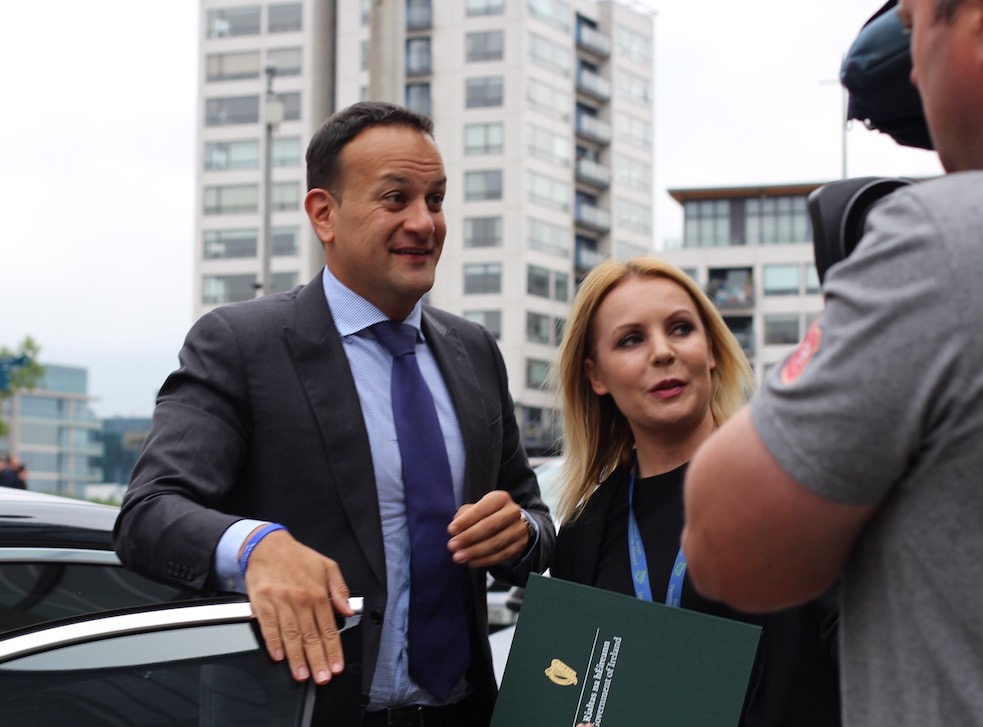Taoiseach Leo Varadkar announced this morning that a general election, long-awaited, will be held on Saturday, February 8th. A Saturday voting day is almost unprecedented, but Varadkar explained that it will make voting easier for parents, those working away from home and, most interestingly, students.
For a party that has consistently and routinely sent higher education towards the bottom of its to-do list, Varadkar’s claim was a brash one.
There are many crises facing Ireland at the moment. From climate to housing, it seems that very few of the country’s problems have remained just problems – many now meet the threshold of proper disasters, in an example of how it never rains but it pours. Higher education funding deservedly finds itself on this dubious list. Major media outlets have for years been calling the sector’s lack of state investment a crisis – tellingly without the inverted commas – and unless there is a significant and specific plan to tackle the issue, then the quality of our education system will continue to deteriorate.
The government will doubtless argue during this election that funding has increased in recent years. But even a cursory second look at the figures will show that this investment is offset by huge increases in the number of students at third-level, and show up this argument as wafer-thin.
Students care about a lot of issues – from marriage equality to repeal to the current cry for climate action, they have usually been near the front of the crowd demanding better from our government. But a party that does not have a dedicated plan to deal with higher education doesn’t deserve students’ votes, no matter how many other boxes it ticks.
It’s an irrefutably damning indictment of the state that universities have to stick out their hands to donors
In Trinity and in other Irish universities, the lack of government funding means that colleges have been forced to seek philanthropic donations to fund their more ambitious projects. Trinity’s Inspiring Generations campaign and NUI Galway’s recent strategic plan are examples of these impressive projects. But it’s an irrefutably damning indictment of the state that universities have to stick out their hands to donors.
Higher education funding is a long-term investment by the government in the country’s future, which means there’s no guarantee of the short-term successes that politicians trade on, but continuing to starve it of funding has ramifications that could last decades. As Jim Miley, the director general of the Irish Universities Association put it: “This isn’t just about third-level students … this is about our collective future.” When underinvestment is demonstrably making university inaccessible to more and more people, as well as limiting the potential for Ireland as a producer of high-impact research, then a change in outlook and strategy is necessary.
As for Fianna Fáil, the party slugging it out with Fine Gael, its leader Michael Martin said last summer that he would consider the introduction of a loans scheme for higher education, and argued against the abolition of student fees. Predictably, his comments didn’t go down too well with students – the president of the Union of Students in Ireland called his intention to retain the student contribution “extremely concerning” – so it will be interesting to see whether the party will backtrack on this when faced with questioning on the election trail. There’s little so far to suggest it will offer up an alternative plan.
Unsurprisingly, the prospect of higher fees is a contentious one. Among students, it’s mostly anathema, while for universities it offers an obvious cash fix. This government seems to have deemed it politically inexpedient – it’s not long since Minister for Education Joe McHugh pledged not to raise college fees above €3,000 for the next five years. But McHugh didn’t have the backing of his own Department of Finance when he made the promise, so even this lukewarm promise may not last if Fine Gael are elected. It also doesn’t answer any of the myriad other questions about the government’s plans for the sector.
Parties aren’t only lacking in policy in the here and now – they’re also lacking in vision about how best to improve the sector
Students’ unions have long argued that the cost of higher education – particularly when expensive accommodation is thrown into the mix – creates a system that serves wealthy students. And a report last year from the Higher Education Authority demonstrated that this inequality stretches much further back, with figures showing that students from affluent backgrounds were more likely to get higher points in the leaving certificate. So far, no party has come forward to say how it will try to tackle these inequalities.
These examples all point to potential government representatives not only ill-equipped to deal with the sector’s crisis but often unaware of many aspects of it. Parties aren’t only lacking in dedicated policy on higher education in the here and now – they’re also lacking in vision about how best to improve the sector: how it should look in the future and how a future government can help it realise its goals.
Education is supposed to be the one great equaliser. But we have reached a point where education is becoming so inaccessible that soon it won’t be an equaliser, but rather another way of exacerbating the inequalities that already exist. Ahead of the general election, students deserve to hear parties explain their vision for the higher education sector, as well as providing policy to be analysed and debated on. Fees and the housing crisis should be a priority for every party. A Saturday election will hopefully increase the number of students voting: they deserve to have policy to vote for.







